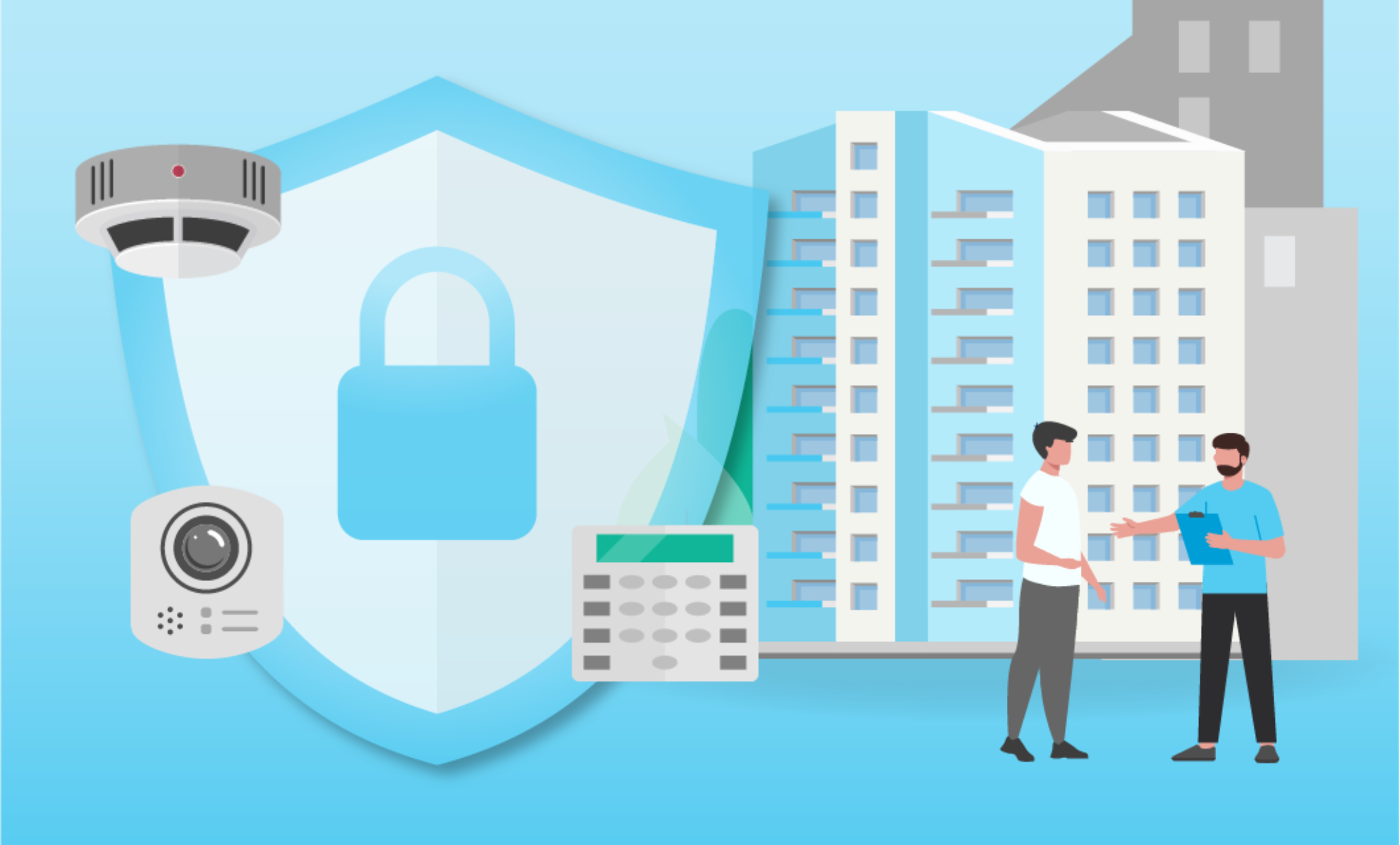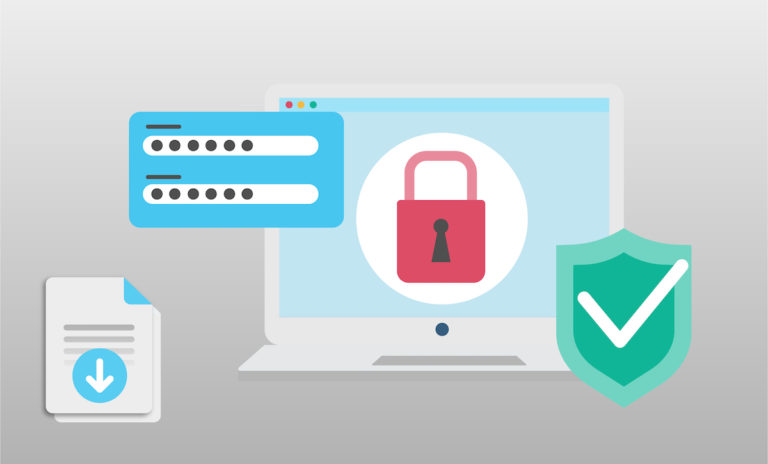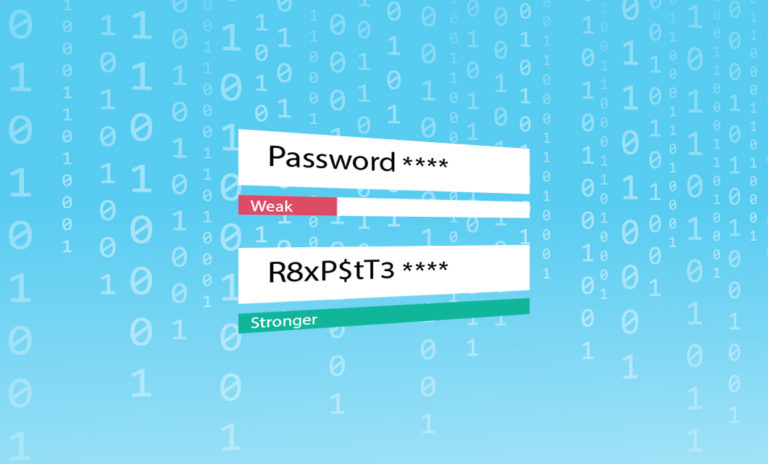
In the world of property management, it’s difficult to overstate the importance of ensuring physical security. First and foremost, it’s a matter of keeping tenants, guests, and staff members safe, as well as protecting their possessions. At the same time, physical security can have a major impact on profitability, because how secure tenants and others perceive a property to be can influence how much a landlord can charge in rent. This reality creates a significant need to ensure not only that tenants, guests, and staff are safe – but also that they feel safe.
But while landlords and property management companies invest in physical security devices to address these needs, in many cases those devices are not operationally managed adequately. This can create serious risks in terms of both physical security and cybersecurity. To ensure that their physical security devices work properly and consistently, landlords and property management companies need a more effective way to operationally manage those devices.
Physical security is an essential component of property management
Landlords and property management companies understand that it’s critically important for them to take steps to ensure the physical security of tenants, guests, staff, and property. Most importantly, watching out for the security of their tenants, staff members, and guests is a matter of keeping them physically safe. In addition, the level of security landlords and property management companies deliver can affect the desirability of a given piece of real estate, which in turn affects that property’s value and the rent that it can earn. Physical security also has legal implications – given the risk of landlords being held responsible for taking inadequate steps to keep their property safe and free from crime – and it can impact their insurance costs.
Some of the main risks from which property management companies and landlords rightly want to protect tenants include theft, burglary, assault, vandalism, and loitering. In addition to making their own premises a safe place for people to spend time, they also need to protect vehicles parked on their premises, delivered packages, and much more.
To meet these needs, landlords and property management companies rely on physical security devices such as IP cameras, access control systems, sensors, and alarms. In addition to reducing the risk of crime, these devices can help in rapidly detecting other dangers, such as fires.
Landlords and property management companies may also work with third-party physical security service providers – not only to provide and install security devices, but also in some cases to monitor their properties.
Physical security devices play a critical role, but they’re often managed inadequately
As important as physical security devices are, it’s common for them to be left unmanaged once they’re installed, creating a risk that they will stop working properly and their owner won’t know. Last year’s shooting on a subway in Brooklyn illustrated a worst-case scenario, with security cameras not working properly in a moment of real need. While the subway attack was an extreme case, the risk of physical security devices not doing their job because they are not adequately managed is widespread and serious.
In fact, our recent data show that 5.6% of an average organization’s physical security devices are disconnected from their network at any given time. In addition, our data show that 3.5% of an average organization’s IP cameras are disconnected from their VMS at any given time.
The danger of undetected and extended device downtime is a significant one for property management companies and landlords. Should these devices fail to prevent or document a serious security incident, that can leave tenants, guests, and staff members in physical danger. That type of scenario can also hurt a property’s reputation and ultimately result in lower desirability, lower rent, and lower overall profitability.
Inadequately managed physical security devices also pose a cybersecurity risk
Physical security devices can be an attractive target for hackers eager to compromise sensitive and valuable information – a risk reflected in the U.S. National Cybersecurity Strategy announced earlier this year. For instance, in 2021, hackers managed to compromise roughly 150,000 cameras belonging to video surveillance startup Verkada.
To protect against this risk, it’s important to take steps such as rotating passwords, upgrading firmware, and managing certificates as necessary. Unfortunately, however, it’s common for physical security devices to be managed inadequately.
For instance, our own data show that 57% of an average organization’s devices are running outdated firmware – creating a risk of erratic functioning, malfunctions that could result in downtime, and unpatched cybersecurity vulnerabilities. And Genetec has estimated that a reliance on outdated firmware leaves nearly 40% of security cameras vulnerable to hackers. Meanwhile, our data show 46% of physical security devices in use are past their end of life and 11% are past their end of service, making them easy targets for cybercriminals.
With the average data breach in the U.S. now costing $9.48 million (according to IBM’s Cost of a Data Breach Report 2023), the risk of falling victim to a data breach is a serious one – especially for property management companies and landlords, given the value and sensitivity of their information on tenants. They need to be careful not to violate privacy laws such as the California Consumer Privacy Act (CCPA). And in New York City, a groundbreaking law – the Tenant Data Privacy Act – has laid out privacy protections specifically for tenants.
Meanwhile, given their growing reliance on IoT technologies, landlords and property management companies must be particularly careful to avoid the risk that their physical infrastructure could be compromised and held for ransom.
There is a more effective alternative
To ensure that their physical security devices stay operational and secure, landlords and property management companies need to improve the operational management of those devices. By managing their security devices in line with best practices, they can protect themselves from the twin risks of device downtime and cybercrime.
The problem is the amount of work involved in operationally managing physical security devices properly. Because much of that work is performed manually and on-site, this approach tends to be both time-consuming and expensive. Many organizations find the goal of adequately managing their physical security devices too massive to be feasible, and the risk of human error is significant.
In the face of these challenges, automation offers landlords and property management companies a more reliable, efficient, and cost-effective way to operationally manage their physical security devices. By automating the management of these devices, they can better protect themselves, their tenants, their guests, and on-site possessions from the security risks that they face.
In large part, that’s because automation can help landlords and property management companies minimize their physical security devices’ downtime, both by detecting technical issues and by diagnosing and resolving those issues rapidly. At the same time, an automated approach to operationally managing physical security devices helps them stay safe from the cybersecurity risks they could face.
And because of the efficiency and convenience of this approach, it can result in significant cost savings. For example, by making it easy to restart devices remotely and in bulk, a comprehensively automated solution can eliminate the need for roughly 70% of truck rolls.
In short, automation offers landlords and property management companies a cost-effective way to enhance their overall security posture. And given the importance of security in the world of property management, that should help them – as well as their tenants – to sleep better at night.
For a closer look at how automation can help you to efficiently boost security within the properties you own or manage, check out The Guide to Automating Physical Security Device Management.




